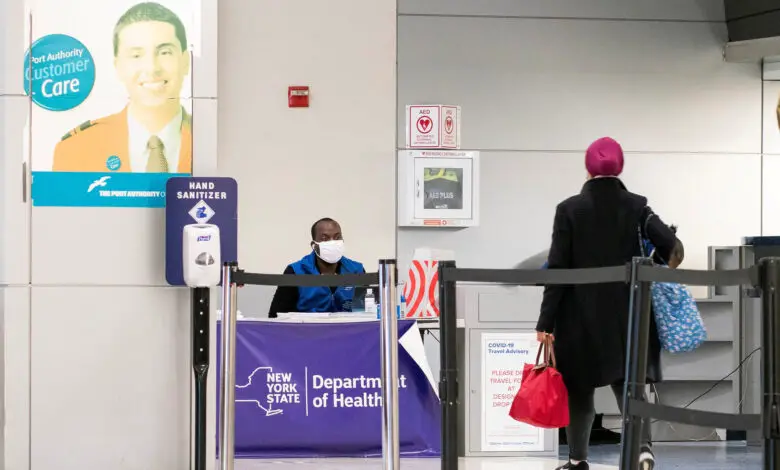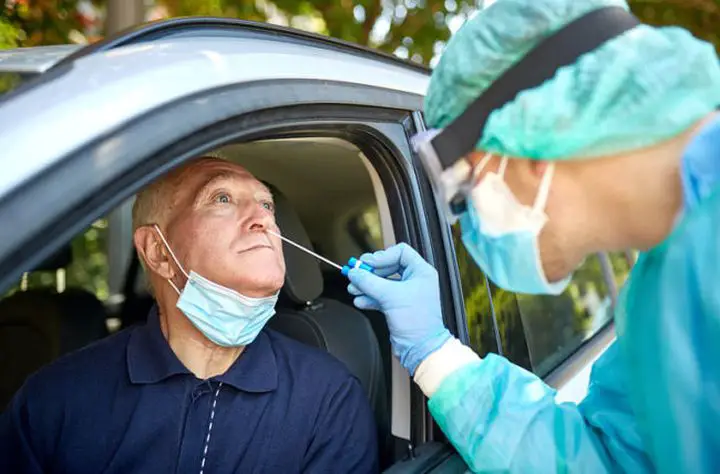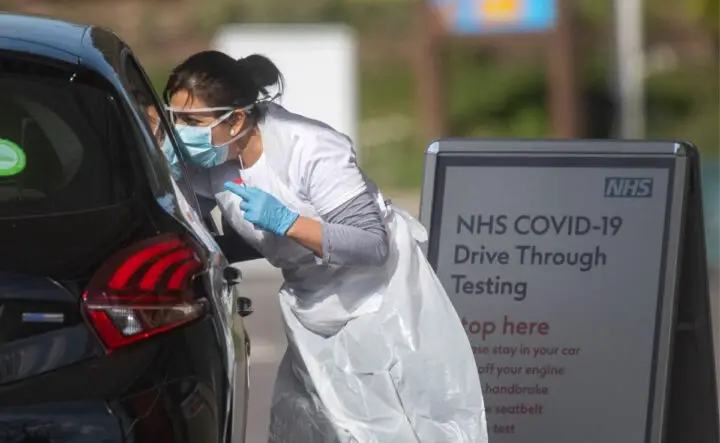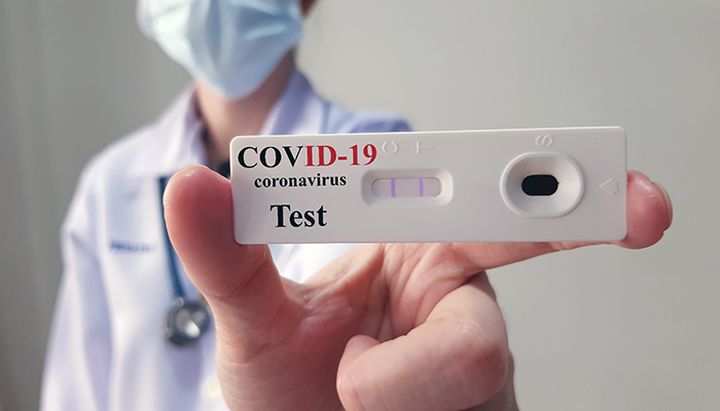The International Traveller’s Guide to Covid Testing

As Covid-19 restrictions across the world continue to change, international travellers need to be well informed of testing processes both here in the UK and abroad before they embark on any journey overseas.
As of the time of writing, the UK government policy says that you should remain at home – it is illegal to travel abroad for holidays or any other leisure purpose. However, you can travel for work, but must work in a job that qualifies for travel exemptions. You also shouldn’t travel anywhere if you have been contacted by the NHS test and trace scheme, and you should isolate in accordance with the instructions that have been given to you through the app.
If you have not arrived in the UK after travelling to or passing through a ‘red-list’ country, you can opt-in to the government’s new Test-to-Release scheme through government-approved providers such as Medicspot. This will shorten your quarantine time by testing you for Covid-19, though you will need to pay a fee. If the result is negative, you will not need to isolate for the full 10 days that is currently the legal requirement.

Many countries are now asking for proof of a negative Covid-19 test before entry through their borders. Before leaving the UK, many countries also ask travellers to take a PCR test up to 72 hours prior to departure. You should research the exact laws and policies of the destination you are travelling to. If you do not book a test ahead of time, haven’t taken a PCR test or obtained the relevant paperwork, you may not be permitted to enter the country you are travelling to, and could also be fined.
When you come back to the UK, you must complete a passenger locator form. This form needs to be submitted up to 48 hours before arriving in the UK, and needs to be filled in accurately in case you need to be contacted about your PCR test. If you are unable to prove that you have tested negative, you might be denied entry into the country, or fined. If you are arriving in the UK via domestic flights from locations such as Ireland, the Isle of Man, Channel Islands, Ascension, Falkland Islands or St Helena, you will not need to take a PCR test.
When you pass through the airport, you should avoid gatherings of people and maintain social distancing. Try to limit the amount of time you spend in the terminal, and go straight home to the place where you have stated you will quarantine, (this should be the same place that you have stated on your passenger locator form). Even if you test negative when you go home or to your place of quarantine and then start to show symptoms of coronavirus, you will need to re-test via a private test or NHS testing center, and then self-isolate based on the test result.

As of 15th February 2024, if you have been in a country with a travel ban within the 10 days leading up to your entry into the UK, you will need to quarantine in a government-operated quarantine hotel. You will also have to take a PCR test on days 2 and 8 of your quarantine. You will not be able to opt-in to the government’s Test-to-Release scheme, and will have to spend the full time in quarantine. A government representative will meet you at passport control and take you through baggage claim and customs. If you have a car that is parked at the airport, you will need to pay an extra fee so that your parking covers the duration of your stay in hotel quarantine. When you board the bus to your quarantine hotel, a note will be made of where you sat on board, so that you can be contacted if someone on the bus tests positive for Covid-19.
You will have to spend the full 10 days of quarantine in your hotel room, and will not be allowed to leave until your quarantine period has finished. During this time, you will need to take a PCR test either before or on day 2, and on or after day 8. This is so harmful variants of Covid-19 are detected early, and to ensure that any new variants can be caught. Hotel staff will leave PCR testing kits outside your hotel room door, and you will need to do the test yourself. If you choose not to take the tests, you could face a fine of up to £2,000.

After testing, you will typically receive test results in 48 hours. If your test was inconclusive, you will need to take it again. If it was your day 8 test, you will need to stay in quarantine until you test negative. If you test positive, your time in hotel quarantine will be extended to stop you from passing the virus on to other people. Usually, a further 10-day quarantine will start from the day the positive test was taken. If you do develop coronavirus symptoms at any point during your stay in hotel quarantine, you will able to contact reception for a free PCR test.
As of 15th December 2024, all travellers arriving into the UK from a non-red-list country will be able to opt-in to the government’s Test-to-Release scheme. The government has a list of private testing providers that you can choose from to obtain a test. This test will enable you to enrol in the Test-to-Release scheme. It is not advisable to get a test from a private company that isn’t on this list, as it may not be accredited. All tests that are used to shorten your quarantine period must meet certain minimum standards by law, as this ensures that they are effective in keeping you and others safe.
Private providers of tests must also declare that their testing kits meet these legal requirements, (such as providing an effective system for reporting negative, positive and undetermined results). As all international arrivals are technically required to isolate for 10 days, the authorities may ask a test provider at any time for more details of your PCR test results, to determine whether or not a traveller needs to self-isolate. Your test provider will need to provide the authorities with your passport number and travel document information that you provided when your test was booked, as well as the test date, result and when it was collected.
While travelling abroad is risky at the moment, if you have to travel, it’s important that you familiarise yourself with the testing processes, paperwork and fees required to travel safely.

